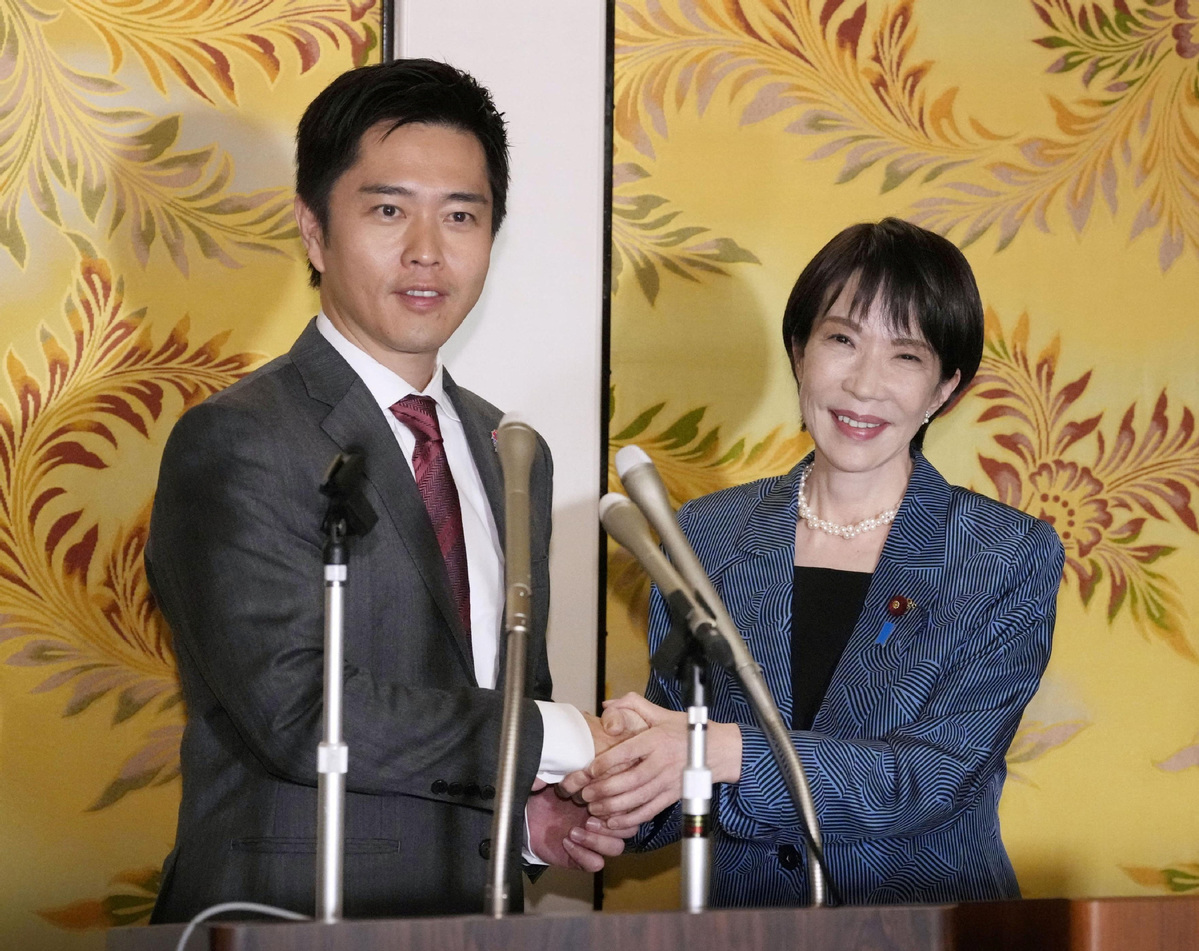Japan's ruling party forms new coalition
Path cleared for ultraconservative Takaichi to become the country's first female PM


Liberal Democratic Party President Sanae Takaichi has largely boosted her chances to be elected Japan's first female prime minister after her party formally signed an agreement in Tokyo to form a coalition government with the Japan Innovation Party on the eve of the extraordinary session of the Diet.
Hirofumi Yoshimura, the leader of the JIP and Osaka Governor, told reporters in Osaka on Monday, "I told her, 'Let's push Japan forward together.'"
The new LDP-JIP coalition will command 231 seats in the Lower House, two short of a majority. To secure a first-round victory, the LDP has already reached out to smaller parties. Nikkei Asia reported that the LDP has already courted Sanseito, a right-wing populist party, as well as other smaller political forces.
The Japan Times reports that the LDP and JIP have agreed to push for a secondary capital — reflecting the JIP's goal of making Osaka Japan's second capital — to cut 10 percent of parliamentary seats and to reform the social security system.
However, LDP and JIP failed to agree on banning corporate political donations or suspending the consumption tax on food for two years. While the JIP has urged the LDP to prohibit such donations to individual lawmakers, the LDP, the largest recipient of corporate and industry contributions, has resisted.
JIP's co-leader Fumitake Fujita told reporters after a meeting with fellow lawmakers on Monday that the two parties will establish an inter-party consultative body to continue discussions on these policies.
According to Japanese media, the LDP asked the JIP to provide ministers as part of "in-cabinet cooperation" and had prepared several cabinet posts. The JIP, however, opted for "outside-cabinet cooperation", joining the government through a policy agreement without immediately sending ministers, allowing the party to participate in policymaking while retaining a degree of independence.
Nikkei Asia, citing a senior JIP official, reported that the LDP has sounded out a proposal to appoint Takashi Endo, chairman of the JIP's Diet Affairs Committee, as an aide to the prime minister, potentially giving him influence within the prime minister's office.
Since the breakup of the LDP-Komeito coalition on Oct 10, major opposition forces have intensified their consultations.
Leaders of the three main opposition parties — the Constitutional Democratic Party, the Democratic Party for the People, and the Japan Innovation Party — met several times over the past week but failed to reach a policy consensus.
If these parties were to unite behind a single candidate in the prime ministerial vote, they could potentially block Takaichi's path to becoming prime minister, given that they hold a relatively large number of seats in the Diet.
Takahide Kiuchi, executive economist at Nomura Research Institute, told Nikkei Asia that the LDP and JIP share common ground on national security, energy and constitutional reform, but differ on issues such as political fundraising, a consumption tax freeze and reducing the number of lawmakers.
Kiuchi noted that the JIP supports the LDP as an "extra-cabinet "partner without sending ministers, which makes their collaboration less deep than that between the LDP and Komeito. Its ability to bring political stability remains to be seen.
































